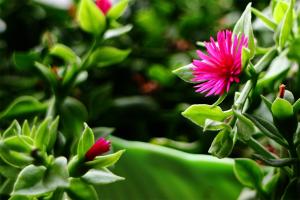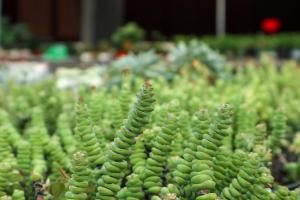How Does a Home Water Treatment System Affect Garden Plants?
Many homeowners install water treatment systems to purify the water they use for drinking, cooking, and bathing. However, some may wonder whether these systems affect the quality of water used for irrigating their garden. In this article, we'll take a closer look at how home water treatment systems can impact garden plants.
Chemicals Present in Tap Water
Unfiltered tap water may contain chemicals that can harm garden plants. Chlorine, for example, is commonly added to tap water to kill bacteria and microbes. Although effective at disinfecting the water, chlorine can also cause damage to delicate plant tissues, leading to reduced growth and poor health.
Similarly, fluoride is often present in tap water to maintain dental health. While safe for humans at low levels, fluoride can accumulate in the soil and damage certain types of plants, such as tomatoes and apples.
Reverse Osmosis System
One of the most common types of water treatment systems is reverse osmosis (RO). RO systems work by filtering water through a semi-permeable membrane, removing impurities and chemicals in the process.
From a gardening perspective, using RO water can have its pros and cons. On the one hand, RO water is free from chemicals and minerals that can harm plants, making it an ideal choice for watering sensitive plants like orchids or bonsai trees.
On the other hand, RO water lacks the essential minerals that are present in tap water, such as calcium and magnesium. Without these minerals, some plants may suffer from stunted growth or reduced yield.
Activated Carbon Filters
Another type of water treatment system that can affect garden plants is an activated carbon filter. These systems work by adsorbing chemicals and impurities on the surface of a carbon block, leaving behind clean water.
While activated carbon filters are effective at removing chlorine, pesticides, and other chemicals that can damage plants, they may not be as effective at removing minerals like calcium and magnesium.
Conclusion
Overall, home water treatment systems can have both positive and negative effects on garden plants. While RO systems and activated carbon filters can remove harmful chemicals and impurities from tap water, they may also remove beneficial minerals essential for plant growth.
Before installing a water treatment system, it's important to consider the needs of your specific plants and soil conditions. You may also consider using a combination of treated and untreated water to provide your plants with the best balance of nutrients and hydration.

 how many times do yo...
how many times do yo... how many planted tre...
how many planted tre... how many pine trees ...
how many pine trees ... how many pecan trees...
how many pecan trees... how many plants comp...
how many plants comp... how many plants can ...
how many plants can ... how many plants and ...
how many plants and ... how many pepper plan...
how many pepper plan...

































